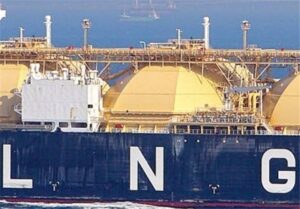Why should you, an energy purchaser in the United States, care about the dynamics of global natural gas markets? Since we first launched The Megawatt Hour, in 2010 and 2011, the US economy has transformed from a net energy importer to a net exporter. It is difficult to overstate the significance of that transformation.
Liquefied natural gas (LNG) technology has made it possible to access natural gas almost anywhere and transport it globally. As a result, LNG and US-produced gas are critical to global energy markets. LNG technology has evolved significantly over the years, transforming natural gas into a globally traded commodity and playing a crucial role in meeting the world’s energy needs.
Recently, the U.S. Department of Energy (DOE) published a report highlighting the various impacts of increased liquefied natural gas (LNG) exports on the US economy and environment.
Make an energy plan now
Don’t get caught without a plan.
Understand energy markets and how they impact your business.
Make markets work for you.
Get access
According to a recent article in Utility Dive,
‘U.S. LNG exports have tripled over the past five years, will double again by 2030 and could double again under existing authorizations, [outgoing Energy Secretary] Granholm said. “The quantities already approved for export equate to roughly half of the U.S.’s total current natural gas production today.” (US LNG exports raise electricity bills, gas prices and emissions, DOE report concludes, December 18, 2024, Robert Walton).
Source: Creative Commons License
What is the significance of this growth? The key findings from DOE’s report are:
- Potentially Higher Prices: LNG exports contribute to higher electricity and gas prices in the U.S., affecting both consumers and industries.
- Increased Emissions: The report notes that expanded LNG exports lead to higher greenhouse gas emissions, which pose challenges to climate goals.
- Economic Benefits: Despite the negative impacts on prices and emissions, the report also cites economic benefits, such as job creation and trade balance improvements
Summary Findings: DOE report on US LNG Exports
So, let’s take a deeper dive into the US DOE’s report findings regarding the US LNG industry’s role in global energy markets:
- Economic Impacts:
- Higher Prices: Increased LNG exports can lead to higher domestic natural gas prices, which in turn may raise electricity costs for consumers and businesses. This effect is particularly significant in regions heavily reliant on natural gas for power generation. The Northeast is one such region: we have significant natural gas-fired power plants and substantial natural gas heating.
- Economic Benefits: Despite the increase in prices, the report highlights economic advantages, such as job creation in the natural gas industry, boosts to local economies, and improvements to the U.S. trade balance due to higher export revenues.
- Environmental and Climate Impacts:
- Increased Emissions: The report underscores that expanding LNG exports will result in higher greenhouse gas emissions. This increase is attributed to both the energy-intensive process of liquefying natural gas and the potential for increased global consumption of natural gas.
- Climate Goals: The rise in emissions poses a challenge to the U.S. climate goals, as it may offset some of the gains made from reducing coal use in power generation.
- Global Energy Market Dynamics:
- Energy Security: By exporting LNG, the U.S. can help enhance energy security for its trading partners, reducing their dependence on supplies from less stable regions.
- Market Influence: U.S. LNG exports can influence global gas prices and market dynamics, potentially leading to more competitive and diversified energy markets.
Conclusions :
The DOE report calls for a balanced approach to LNG exports, one that carefully weighs economic benefits and environmental impacts.
Bottomline for financial and energy decision makers: It’s crucial to stay informed and proactive. Understand what is driving your costs, particularly in the Northeast. (For background, take a look at this article about natural gas and its relationship to power costs.) Some analysts suggest that the timing and overall messaging of this report has political implications. No matter the political orientation, the dynamics of global natural gas markets directly impact your energy costs and our environment.

the megawatt hour
Hedging
How to clarify your objectives and employ hedging effectively
- Understand hedging misconceptions
- Clarify the right strategy for your business
- Communicate your objectives clearly
Free Download
Understand the risks, myths and rewards of hedging energy and fuels.
GET INSIDER INFORMATION ABOUT ENERGY
Are you interested in understanding energy from an insider’s perspective?
Then, sign up for our newsletter. You’ll love it!
We don’t spam and we don’t share your email.


